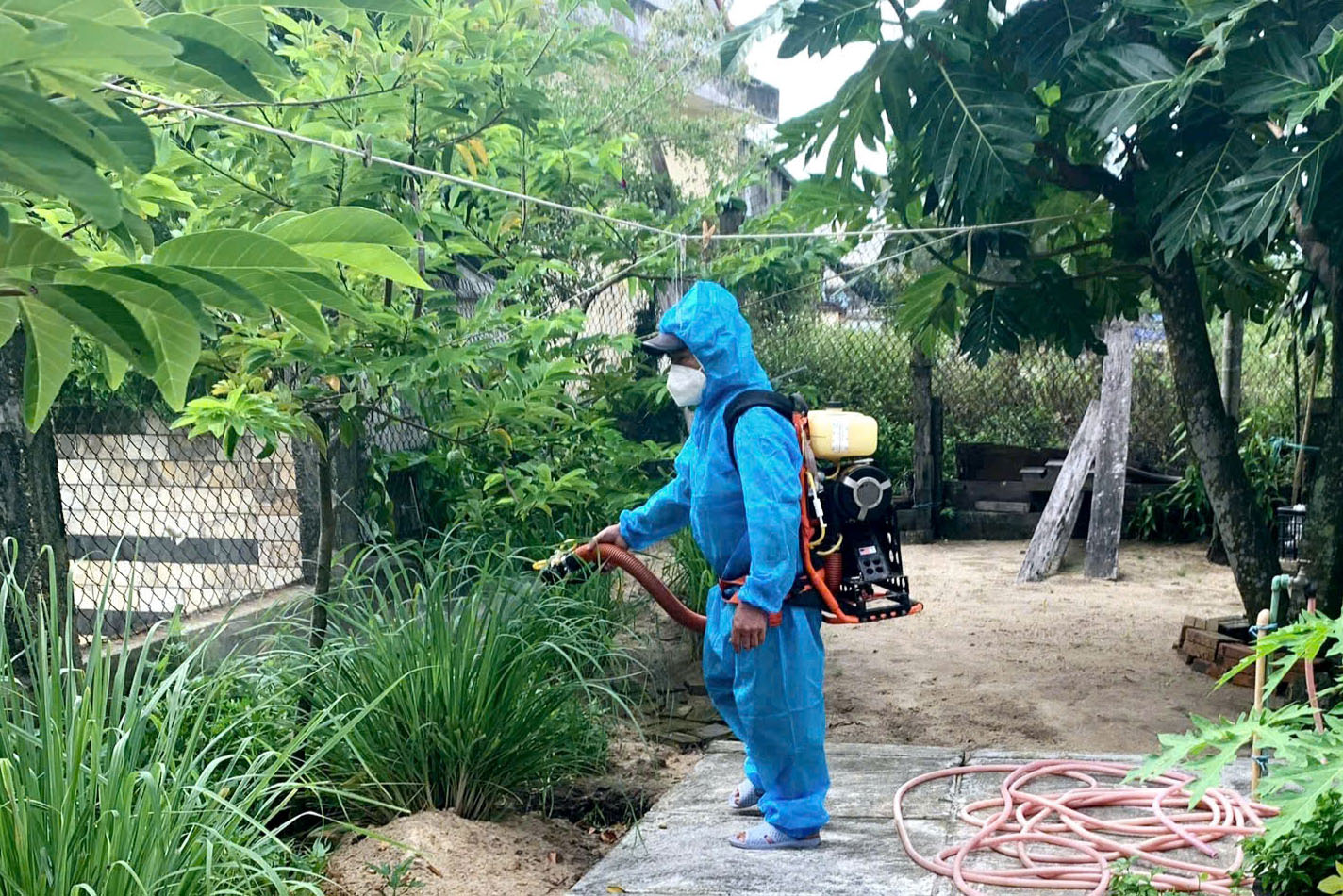On 7/7, a representative of the Department of Health reported that the patient was admitted to Hue Central Hospital in critical condition with signs of septic shock, purple skin discoloration, cardiac arrest, and respiratory failure. Subsequent tests confirmed that he was infected with streptococcus suis.
The Hue City Center for Disease Control (CDC) said that no pigs with blue ear disease were found in the patient's residential area. Those who had contact with the victim have not shown any signs of infection. The reason for the man's infection remains unclear.
Since the beginning of June, the city has recorded 18 cases of streptococcus suis infection, with 11 cases currently being treated at Hue Central Hospital. Typical symptoms of the disease include high fever, severe headache accompanied by vomiting, and decreased vision.
 |
Health officials spray 25% Cloramin B solution for disinfection. Photo: Van An |
Given the complex developments, the Hue City CDC has coordinated with health stations to spray disinfectant to prevent the spread of the disease. At the same time, health authorities are also cooperating with the agricultural sector to monitor and detect outbreaks of blue ear disease in pigs to prevent the slaughter and consumption of infected pigs.
There is currently no vaccine to prevent streptococcus suis. If not detected and treated promptly, the disease can leave serious consequences such as deafness, neurological damage, or multiple organ failure. Therefore, early diagnosis and timely treatment are key factors in improving treatment effectiveness and reducing mortality due to streptococcus suis infection in humans.
Doctors recommend that people absolutely avoid eating raw pig's blood, pig's intestines, or any products from undercooked pork. When buying meat, choose products with a clear origin, avoiding meat with unusual colors, signs of edema, or bleeding. People involved in slaughtering and processing pork should wear gloves, masks, and wash their hands thoroughly after contact.
If there are open wounds on the hands or feet, they should be covered with waterproof bandages before handling raw food. In addition, for ready-to-eat food purchased outside, people should blanch it with boiling water or cook it thoroughly before eating to ensure food safety.
Vo Thanh












